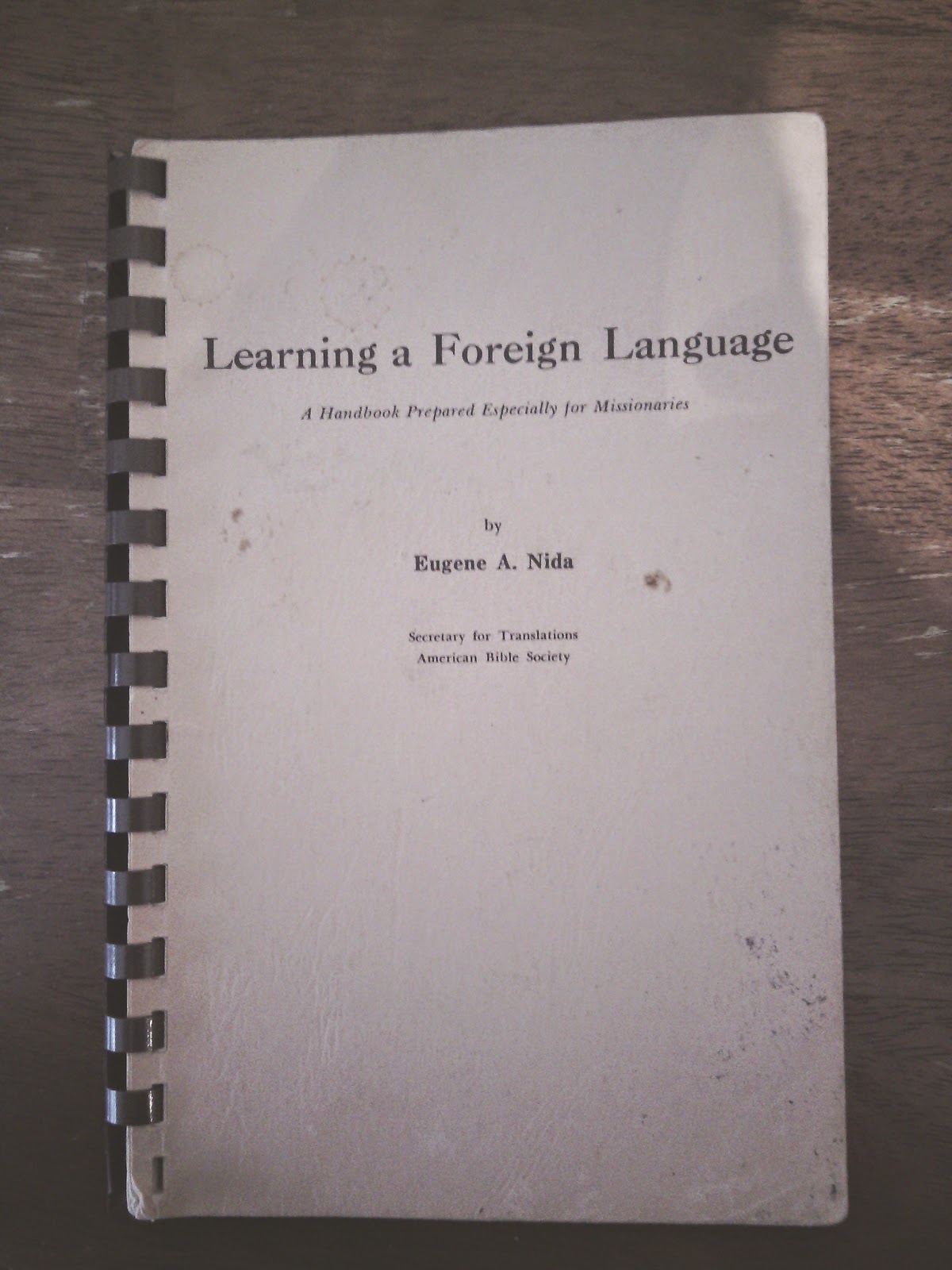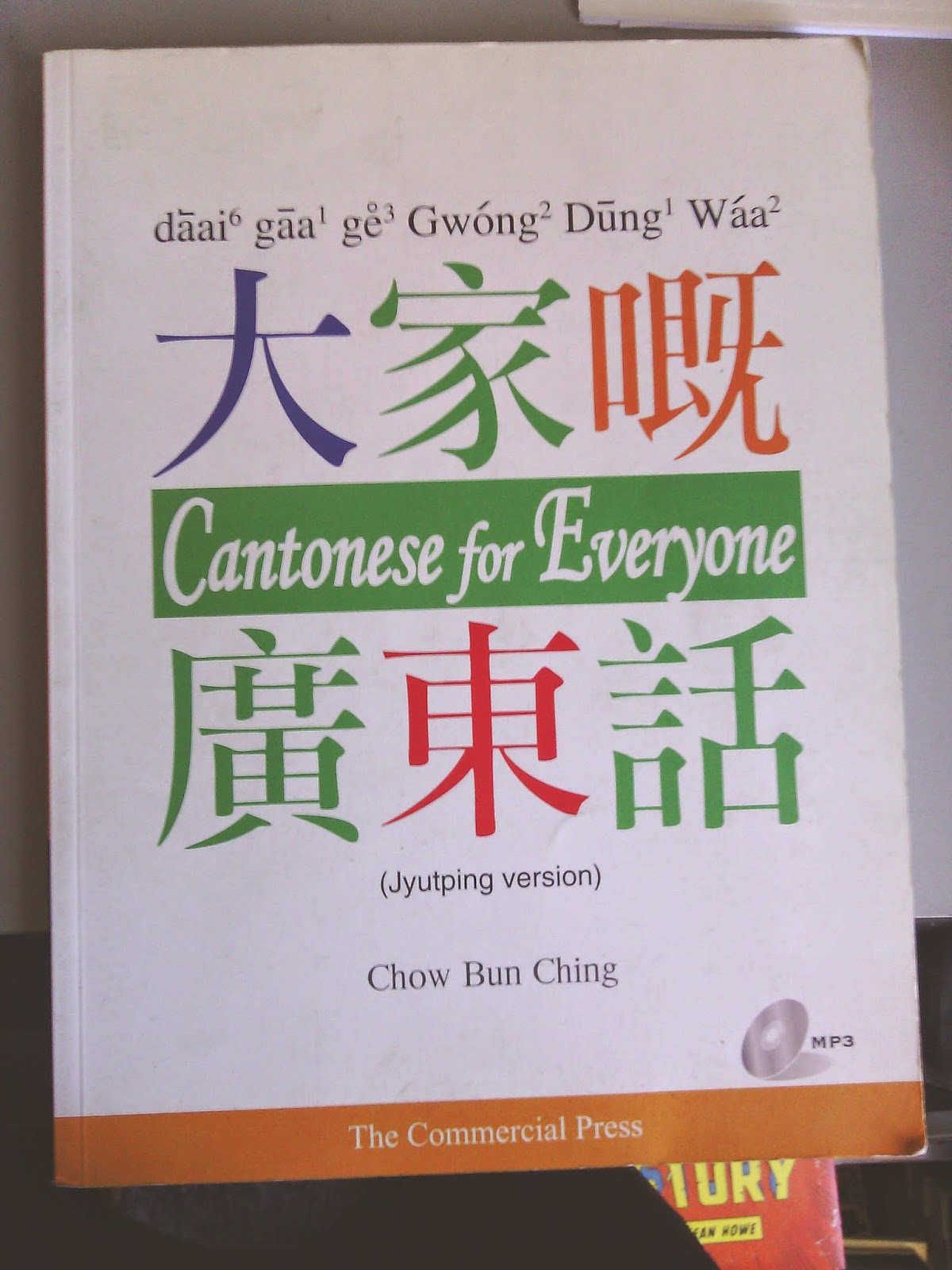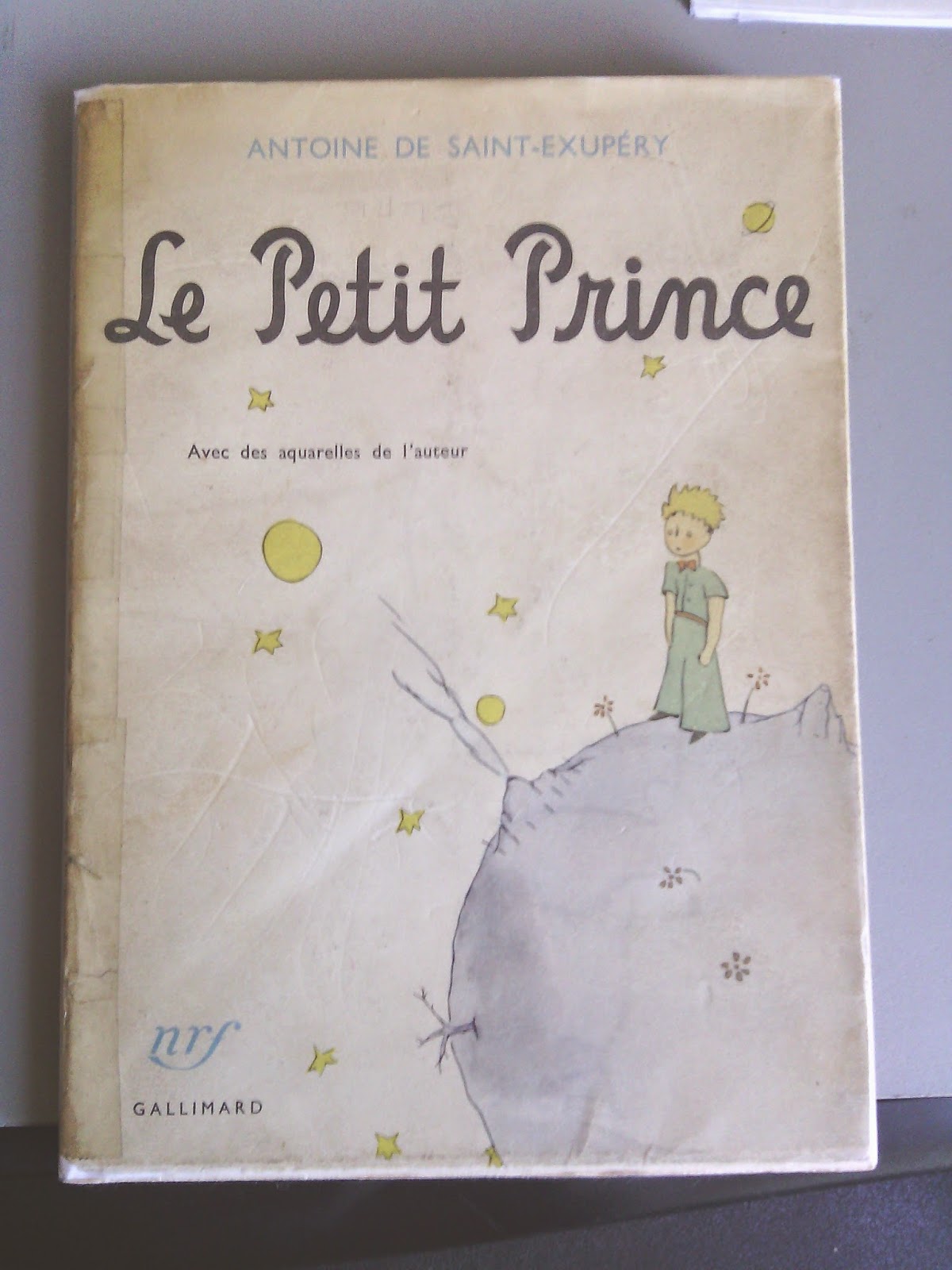48. Cantonese for Everyone (Daai6 Gaa1 Ge3 Gwong2 Dung1 Waa2, Jyutping Version) by Chow Bun Ching
Ok, so just like with the Mandarin textbook from yesterday's post, I did not really read this
entire Cantonese textbook today. Rather, I finished reading the last of 15 lessons this morning, in an effort to review this excellent beginner Cantonese Chinese textbook, from which I will be teaching this fall (see previous posting for ALESN website information; as always, all classes are FREE FREE FREE)...
I love this book. In my mind, it is SOOO much better for beginning (and especially non-ethnically Chinese beginning) adult students learning to speak Cantonese, the official language of Hong Kong, parts of southern China, and many/most of the expat Chinese populations throughout the world (though immigration patterns are changing with the current influx of Mandarin and especially Fukienese / Fuzhouese speakers to New York City and elsewhere in the West).
Unlike Chow's other beginning Cantonese textbook,
Spoken Cantonese for International Students, which I taught from for the past 3 years, this book is geared towards adults interested in learning to speak the language for travel and basic business purposes. Very useful stuff. Definitely looking forward to teaching from this book. If any of my readers are interested in free Cantonese or Mandarin Chinese classes in New York City's Chinatown during the 2014-2015 academic year, please feel free to contact me for more information.
49. The Possible Human: A Course in Enhancing Your Physical, Mental, and Creative Abilities by Jean Houston
This relic of the 80s is a pretty decent, hands on cookbook filled with recipes for enhancing creativity and exploring one's ultimate, mostly sensory, potential. Like
The Artist's Way, which I am about to review, this is a book to be DONE rather than READ. However, given my shortness of time left for my Reading Challenge, and my belief that I might still absorb some of the wisdom inherent in this book without actually DOING any of the exercises, I decided to plow ahead anyway. I am glad that I did.
The same dimensions as The Artist's Way, this book surely must have influenced the publishers of the latter 10 years later. Highlights for me were the development of the concept of the NEBISH (Yiddish) in the chapter entitled, "the Art of High Practice;" an in-depth discussion of inner space and time, and how the passing of time is relative to the person experiencing the passing of that time; learning modalities vs. standard IQ test measurements in children (at least as of the 80s); a story of one tribe in Africa demonstrating an extreme example of how preconceived notions can determine our experience of the world, regardless of what actually exists or is happening in the world when we are experiencing it; the definition of a miracle on pages 197-198; and the activity of humming (singing) at the deepest level to bring forth our core being.
50. The Artist's Way: A spiritual Path to Higher Creativity by Julia Cameron
As cheesy as the mystique has become that has grown around this book and its followers, I consider myself lucky to have been introduced to this classic work of self-actualization literature just 6 years after its publication.
16 years ago this fall/winter, I was given this book as a present by then girlfriend and now one of my best friends, Twyla Heaney. We both lived in Hoboken, NJ, and met each other while waiting tables at the local Johnny Rockets diner. Twyla is great, and she was very supportive of me and my quest for my own musical creativity while she and I dated.
As mentioned above, this is a book that you DO -- not one that you read. I have "done" the book twice -- once in 1998-1999 and again a second time 8-9 years ago when I first moved to Brooklyn, to my current apartment. Because of this book, I have written over 15,000 pages in my journal since 1998 (not a typo). The Morning Pages exercise alone is worth the price of this book, which incidentally you can get very inexpensively on Amazon and, if you are lucky, occasionally from the $1 bin at The Strand in Union Square.
So much of this book resonates with my own personal life right now that I hardly know where to begin -- so I won't. In the interest of time, I will move on to the next review.
51. Organizing for the Creative Person: Right-Brain Styles for Conquering Clutter, Mastering Time, and Reaching Your Goals by Dorothy Lehmkuhl and Dolores Cotter Lamping
Lately, I have found myself disappointed with several of the books I have read in this genre. This book is ok, but it pretty much distills and then repeats the exact same information that I recently read from Stephen R Covey and other authors whose books are included in this blog.
Though ostensibly geared towards "right-brained" (creative) people, the book falls prey to the same criticism I had for another recent organization book which had obviously been written for "traditional" left-brained "business" people. And that is this: invention of book-specific jargon used to then create a system that really isn't and doesn't need to be that complicated.
As someone who struggles with the concept of organization, and specifically currently, with purging my life of all unnecessary CRAP, I was, again disappointingly, not really helped in any meaningful way by this particular book. It is not a bad book, but as with some of the others in this milieu that I have read over the past almost 3 weeks, this particular book didn't really provide me with the solution that I am seeking to my own life, work, and home organization issues.
52. Modern Man in Search of a Soul by Carl Jung
This is a very famous collection of essays by the Father of Jungian Psychology, Carl Jung. Imagine discovering a method of Psychology that already had your own name associated with it. How cool would that have been?
Ahem.
There are many good tidbits in this book, but 2 that stood out to me were:
1) The notion that we often presume that the psychological processes of other people function exactly the same as our own, and because of this, we tend to project onto other people all of our own shit, assuming that their motivations for anything and everything can be explained in terms of how we live our own lives. What a breathtaking falsehood this is, people.
2) We can only truly understand another person -- their life and motivations -- by really digging deeply into the meanings of that person's experiences and doing everything in our power to recognize ONLY the meanings of the experience(s) as they pertain to that other person -- completely separate from anything that we may think about our own lives and experiences. When one delve into this deeply enough and on a cultural level, it is known as A PARTICIPATION MYSTIQUE, in which the individual can for a moment forget about the specifics of his or her own life and at that moment proceed to a deeper alignment with a more
human existence.
This is really good stuff!
53. Thinking and Language by Judith Greene
This slim volume begs the issue for me of whether I am cheating in some way on the present Reading Challenge. At 135 pages, I am not sure whether this book really qualifies in the same way as most of the others I have read so far. However, it was sitting on my shelf for at least a year or two, and though I really gleaned only one meaningful thing from my reading, I am glad that this one is out of the way. You never know until you read, whether a seemingly "important" book will live up to its promise...
I didn't realize until taking a photo of the cover just how sexual the cover image might be. Boy, that's fun.
In essay number 5, which is the title piece and which is located halfway through the book as a bridge between a series of essays on cognition and another series on language, the author does a nice job of summarizing, in 10 pages or so, the prevailing views (as of 1975) regarding how language develops from thought. This was pretty interested for me, an eventual intended linguistics grad student.
54. The Drama of the Gifted Child: The Search for the True Self bu Alice Miller
I suppose that I would be "just like" some psychologists to use case studies of crusty old white men to try to explain away everyone under the sun -- black, white, asian, hispanic, male, female, whatever. For me, this book falls under the umbrella of that unfortunate brand of "scholarship" which comes up with a Eurocentric premise and then attempts to extrapolate from the mental "workings" of a few white male case studies to show that these findings are somehow universal to all humankind, regardless of race, culture, language, or background.
I had first heard of this thin volume from one of my best friends in Hoboken, NJ 15 years ago. His shrink at the time had recommended this book, and I think that for my friend, this title may have actually resonated with his life and concerns at the time. Speaking only for myself, I was amazed that the author could not see the fundamental stretch of logic inherent in using only a small handful of case studies of powerful, famous white men in the last chapter to try to explain the conflicts that everyone goes through with their parents during childhood and adolescence.
Perhaps it is only because of 35 years of hindsight since this book's initial publication that I am even aware that this material might be explored in a more universal, less jargony fashion...?














































